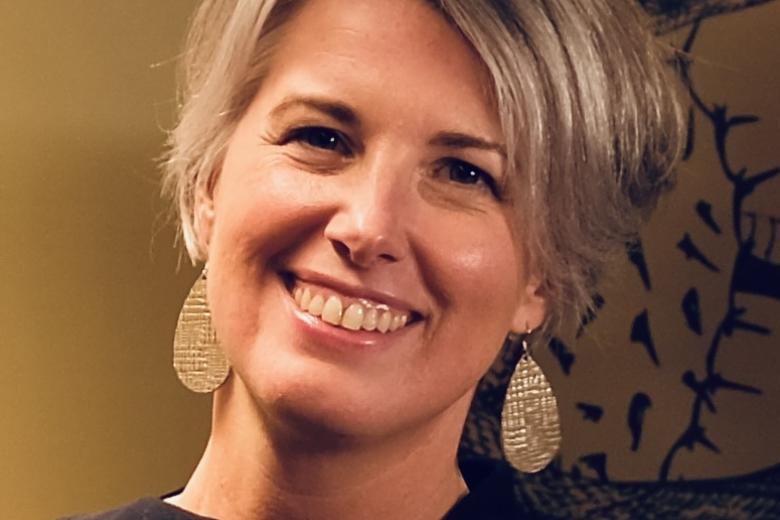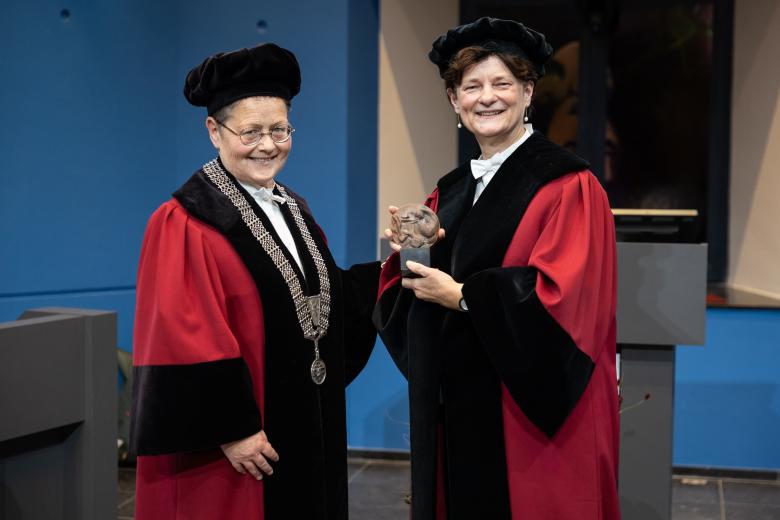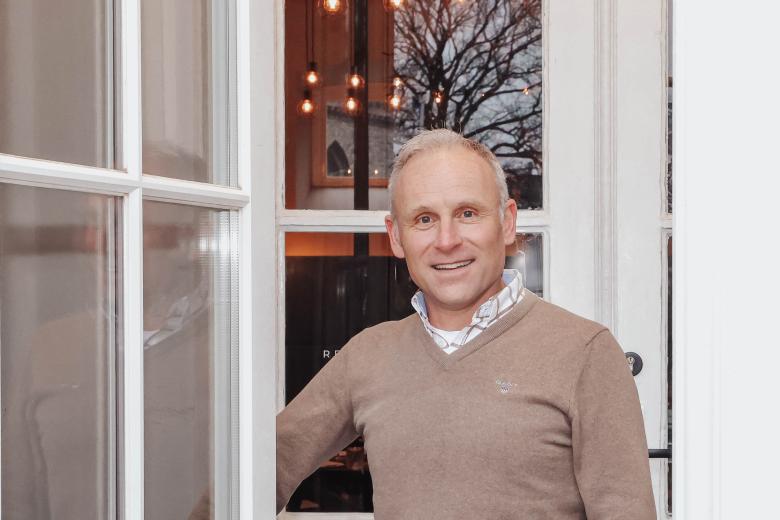Is prevention cheaper than cure?
“Prevention, says Professor Mickaël Hiligsmann, means ‘everything that helps to avoid health problems.’ Examples include vaccinations, support for quitting smoking, and national screening programmes for bowel and breast cancer. For years, he has studied the economics of prevention — in other words, its costs and benefits. Based at Maastricht, he contributes to Maastricht UMC+’s ambition to become a national centre of knowledge and expertise in prevention and vitality.
If life had taken a different turn, Hiligsmann (44) might have pursued professional football instead of academia. For years, he played in Belgian teams comparable to the level of MVV Maastricht. “Combining my economics studies until age 22 and later my university work with several weekly training sessions — plus a family life — taught me how to plan, organise, and keep many balls in the air,” he laughs.
Born and raised in the French-speaking region between Eupen and Verviers, Hiligsmann still lives there with his wife and two daughters. “Living in the countryside helps me maintain balance. In 2011, when I joined Maastricht University, our youngest daughter was born — and I stopped playing football. I wanted to spend more time at home.” By then, it was clear that his professional future lay in science rather than sport. These days, he keeps active through walking and cycling.
From Liège to Maastricht
A PhD in health economics was not something he had planned. “A colleague told me about a professor at the Faculty of Medicine looking for an economist for a short project. That led to my PhD at the University of Liège. Health economics has a clear link to practice, and I wanted to contribute in that way. Liège doesn’t have a large community of health economists, but Maastricht does. After visiting their symposia, opportunities arose for me to work here. Two years later, I got a permanent position and gradually developed my career,” he says with modesty.
Only the best researchers reach the rank of professor — and even then, two additional factors help. “I enjoy working hard, and I’ve been lucky now and then,” he admits. Since May 2025, he has been Professor of Health Preferences and Economics of Prevention at CAPHRI, part of Maastricht University’s Faculty of Health, Medicine and Life Sciences. This appointment fits the joint ambition of the university and Maastricht UMC+ to take a leading role in prevention and vitality. “I never planned to become a professor, but I’m proud of it. My parents didn’t study, but they always encouraged me to do my best. My father often said, ‘It can always be done better,’ — even at the edge of the football field.”
The value of public perspective
His work combines the economic side of prevention with public preferences — because ultimately, preventive measures are meant for people. For example, two years after the COVID‑19 pandemic, Hiligsmann investigated what people value most about vaccination. Do they prefer long-lasting protection or minimal side effects? Does the number of injections matter? “We found that people mainly valued longer protection. So, if the government wants high vaccination uptake, that’s a crucial insight.”
The complexity of prevention
Prevention might sound straightforward, but reality is more complex. “Preventive measures should benefit everyone, yet they’re not always cheaper than doing nothing. Policymakers also tend to prefer quick results, whereas prevention requires long-term investment. And often, the one who pays for preventive actions — for example, an employer providing healthy lunches — is not the one who benefits if staff later move on.”
A project he runs with the University of Twente illustrates these challenges. “We’re developing an online screening tool to help people assess at home whether they are at increased risk of diseases such as cardiovascular conditions. Those at risk are encouraged to visit their GP for further tests. But because Dutch primary care is already under pressure, can doctors handle the extra workload? Ideally, screening is efficient — but in the real world, it’s not always so simple. Still, I’m convinced prevention is crucial to keeping healthcare affordable and accessible for everyone.”
Evidence to support decision‑making
To better understand the health and financial effects of prevention, the outgoing Dutch cabinet has commissioned an investment model for preventive actions. Hiligsmann is directly involved in this work. Together with his team at CAPHRI, he is contributing to the assessment tool from the Dutch National Institute for Public Health and the Environment (RIVM) to evaluate preventive interventions. The RIVM is currently testing this assessment framework through four case studies; Hiligsmann’s team is responsible for the obesity case, mapping both the health gains and economic impact of specific measures.
One of these measures considers banning fast‑food restaurants within 400 metres of schools or parks. What would that mean for young people’s health? What would it cost, and what would it deliver — both for individuals and society? “We want to create a practical, evidence-based framework to help governments and public health agencies make well‑informed choices around prevention.”
Given that healthcare budgets are constantly under pressure, Hiligsmann sees it as essential to demonstrate the societal and financial benefits of prevention. “The aim of my chair is to show the economic and social value of prevention, connected to patients’ needs and values. That can support policymakers in making balanced decisions — for instance, in funding, programme design, and lifestyle promotion.” He believes that investing in effective preventive strategies will ultimately reduce healthcare costs and improve wellbeing. Early in 2026, the Lifestyle in Healthcare Coalition will publish a report — co-authored by Hiligsmann and colleagues — describing how policymakers can more easily adopt healthy, evidence-based lifestyle choices.
Parallels with football
Even today, Hiligsmann recognises similarities between research and football. “In both, you have to give your best — and teamwork makes the difference.” His broad interests — exploring various domains where prevention plays a role rather than focusing on a single topic — make him, in football terms, “a strong midfielder.” “I also really enjoy supervising PhD candidates, even those working part-time or abroad. Altogether, I currently supervise around fifteen PhD and postdoctoral researchers from Lebanon, Zimbabwe, India, New Zealand, Germany, and England. I’m always available for them and enjoy sharing knowledge. It’s part of the field — and it suits me well.”
Elections
On 29 October, the Dutch general elections will take place — a defining moment, because keeping healthcare affordable, accessible, and high‑quality requires political action. The NFU, the association of Dutch university medical centres, calls for strong commitments on key topics such as prevention. Poor health costs the Netherlands tens of billions of euros every year — not only through healthcare expenses but also through reduced productivity. An ambitious national health plan and genuine collaboration are essential. Dutch UMCs, including Maastricht UMC+ with experts like Mickaël Hiligsmann, are ready to contribute. Read more in the NFU’s election manifesto For the Health of Tomorrow via https://www.nfu.nl/actueel/nfu-verkiezingsmanifest-voor-de-gezondheid-van-morgen.
Also read
-
Tanne van de Kreeke – a former lawyer turned epidemiologist
According to Tanne, a former lawyer and now part-time Epidemiology student, the quality of research in general would improve if more people had a better understanding of epidemiology and how the field relates to research methodology. Tanne is clear about the benefits of the master’s programme.
-
Prof. dr. Mirjam oude Egbrink awarded MUMC+-medal
During her farewell lecture on Friday, 28 November, Prof. Mirjam Oude Egbrink was awarded the MUMC+ medal by Dean Annemie Schols for her distinguished career.
-
Jeroen Hendriks: first professor of Nursing Sciences at MUMC+ in a long time
Jeroen Hendriks (CAPHRI) has been Professor of Nursing Science since last year and will deliver his inaugural lecture on 4 December 2025.